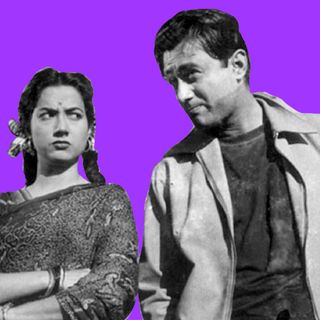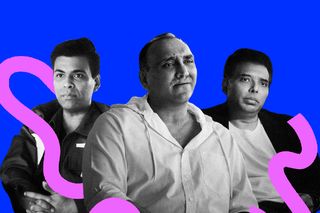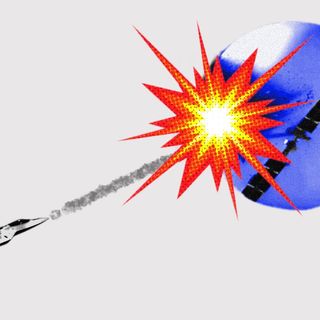
‘The Romantics’ Shows the Thinning Line Between Documentaries and PR
‘The Romantics’ presented a PR exercise neatly packaged as intellectual discourse, blurring the line between documentaries and PR.

Tooting one’s own horn assumed national importance this week with the release of Netflix’s docu-series: The Romantics, produced by Yash Raj Films (YRF) Entertainment. The overwhelming takeaway from the series was that it was used as a vehicle to deliberate on the genius of its subject — YRF itself. And herein lies the problem: The Romantics joins a growing canon of OTT shows that call themselves documentaries, but resemble an advertisement campaign instead. The main difference here is that the subjects of the documentary are the makers themselves, while the featured interviews are reminiscent of old boys’ clubs in the finance and law industries that gatekeep their positions of power.
The series starts off by educating its viewers on the influence of national events — India’s independence in 1947, the 1975 Emergency, and the liberalization of the country’s economy in the 1990s — on Indian cinema. But, soon, it launches into a video oddly reminiscent of those that people make for their close friends’ birthdays — narrating why their friend is so special to them, what their first encounters and impressions were like, how they cherish the memories of their collective camaraderie, and so on. The “friend,” here, was filmmaker Aditya Chopra, the chairperson at YRF, and the people offering their insights were largely his childhood friends and his mother.
But the fact that it was promoted as a documentary forces us to reckon with the vigorously thinning line between documentaries and PR exercises. The Romantics — which showered praises on the very people producing it — isn’t the only show in recent times that appears to be an image-building exercise under the garb of a serious documentary. Harry & Meghan, yet another docu-series by Netflix released last year and co-produced by the couple’s production company, is another example of public figures trying to “take control of the narrative.”
This is a common argument in defense of these shows. That might ring true in the instance of Love, Pamela. It’s a memoir by Pamela Anderson herself that allowed the actor and model to reclaim her agency after years of being objectified by the media. For the Duke and Duchess of Sussex, too, the argument is, perhaps, partially valid — after all, Meghan was indeed subject to myriad instances of racism and sexism by the tabloids and, allegedly, the British royal family. Like Anderson, they, too, were arguably victimized by skewed power dynamics. But, then, the couple has often crossed over from presenting their side of the story to indulging in self-praise in an attempt to build a brand out of their celebrity. Documentaries, then, become an effort in furtherance of the same agenda.
What makes the defense fall almost completely flat when it comes to The Romantics, though, is the fact that its subjects are the ones who wield the most power in the Hindi film industry. They are, therefore, already in control of their narrative, which they have now used to cement their status as legends and geniuses.
Related on The Swaddle:
Spy, Cop, and ‘Astra’ Universes Taking Over Cinema, Points to the Marvel‑ification of Bollywood
As a result, against its own instincts, there’s a distinct lack of self-awareness among the subjects of the latest docu-series. There’s one narrative that’s spun out of Bollywood’s control: nepotism. The Romantics attempts to pre-empt and reclaim it, but its fatal flaw is that this falls squarely within the domain of PR. Uday Chopra (perhaps, a tad meanly) was the chosen focal point to address the debate around nepotism in Bollywood — notwithstanding that Chopra’s name and celebrity status remaining in the public domain despite his unsuccessful acting pursuits is in itself a result of nepotism. Moreover, not many who fail are offered the chance to produce and present their story on a leading OTT platform — with their friends and colleagues praising their virtues as human beings.
Then, in course of establishing the genius of Aditya Chopra, the documentary sheds light on the two people he wanted to work with for his directorial debut: his brother, Uday Chopra, and his friend, Karan Johar. As the show admits, both had other plans, and didn’t actually want the roles they were trusted with. However, instead of hiring people who would’ve probably killed to work with a leading production house, the brother and the friend were hired anyway — proving the point that critics of nepotism have been making for so long. Johar, who was part of the documentary himself, then “reviewed” The Romantics — heaping further praises on the Chopra brothers, and showing that film families, indeed, control their own narratives.
There is, perhaps, one insight into the subject that The Romantics inadvertently provided: Bollywood’s tendency to treat real-world events as plot points in their own grand story. Take the fact that the show referred to the tragedy of the 26/11 terrorist attacks in Mumbai — where real people actually lost their lives — and embedded it into the narrative of Aditya Chopra’s directorial comeback with Rab Ne Bana Di Jodi, which was released within weeks of the attack.
Still, many Indian audiences love The Romantics. This is unsurprising; we live in a country obsessed with love stories, and for any Bollywood lover, it is intriguing to learn about its conception and rise. The Romantics met that demand — featured fan favorites like Shah Rukh Khan, Amitabh Bachchan, and Salman Khan, and presented the PR exercise neatly packaged as intellectual discourse.
What remains unaddressed, then, whether it’s The Romantics, Harry & Meghan, Love, Pamela, or even semi-fictional series like Masaba Masaba, however, is the question of who is in a position to reclaim the narrative. Indeed, the very idea of taking control of a narrative is PR 101; documentaries, on the other hand, have typically attempted to showcase alternative or forgotten narratives. While both are exercises in storytelling, the ongoing trend of public figures turning their own version of their stories into content for consumption prompts questions about power, celebrity, and the unending tussle for the elusive Narrative.
Devrupa Rakshit is an Associate Editor at The Swaddle. She is a lawyer by education, a poet by accident, a painter by shaukh, and autistic by birth. You can find her on Instagram @devruparakshit.
Related


Why Gen Z Memeifying World Events Isn’t Trivial
